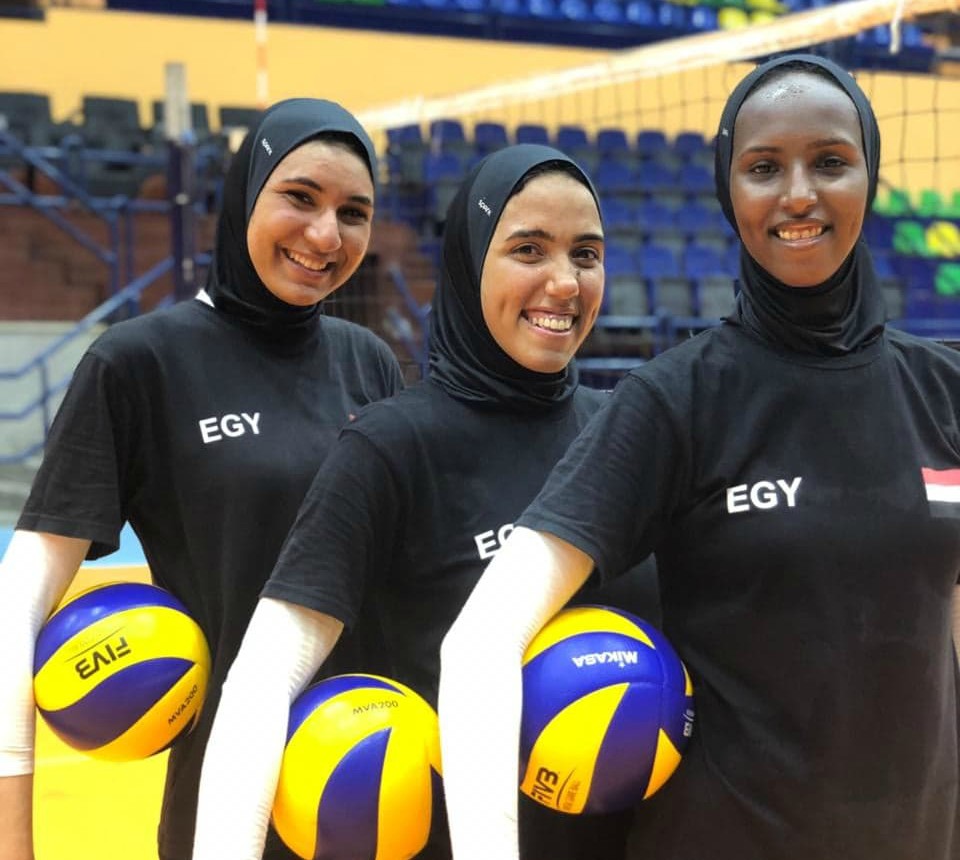This Egyptian brand is making German tech-based modest sportswear affordable versus giants like Nike
Sports hijabs have been around for some 16 years, but only started to gain mainstream, global traction once U.S. sportswear giant Nike entered the segment in 2018 with its ‘Pro Hijab’ for Muslim women athletes.
Other global sportswear brands have followed Nike, such as Adidas, in launching sports hijabs and using Muslim athletes as part of their marketing campaigns.
There are no statistics on how well these sports hijabs are selling around the world, but one challenge is the price, being beyond the purchasing power of many Muslim women in lower-income countries such as Egypt, which has a population of 100 million and whose minimum wage is 2,000 Egyptian pounds ($127) per month.
“The women that can afford imported sports hijabs don’t wear them, or [they] go to private gyms, but what about all the women that could have been champions but did not because they didn’t have the correct sportswear?” said Nancy Salam, co-founder of Spark Perform, which is based in El Obour City, a garment manufacturing area outside of Cairo.
“We have a very young population which are very interested in sports, with around 9 million aged between 15 to 24 years old, but the biggest problem is that purchasing power is low, and imported goods are expensive.”
In 2018, following the depreciation of the Egyptian pound, the government introduced higher customs duties on imported garments, at 40%, to bolster domestic production and sales.
To cater to such a large demographic, Nancy Salam and co-founder Christine Beez, a former Adidas sportswear designer, launched modest sportswear brand Spark Perform in Egypt in late 2018.
GERMAN R&D BUT GARMENTS MADE IN EGYPT
Beez designed the modest sportswear – hijabs, tops and leggings – while a research and development partnership with Germany’s New Textile Technologies (NTT) in Balingen developed the products. The garments are manufactured in Egypt, a major global exporter of garments.
“We studied what women needed, from professional to casual female athletes, and studied the fit required, how long the top needs to be, the pulling technology and to dry fast, as many women are wearing three layers to be modest,” she said.
Nancy has been able to utilise the expertise of her family’s business Salamtex, a leading producer of lace. “Our garments are very intricate, sewing garments with a fabric that is up to 30% elastine content,” she said.
By using the latest technology and nylon fabrics Spark has been able to compete with global brands, while emphasizing the German development of the hijab has given it an edge versus local competitors, despite being 30% more expensive.
“We are the only brand in Egypt that uses higher quality fabrics than global brands and at lower prices as there are no customs duties to be paid,” said Nancy.
While Nike and Adidas sports hijabs retail at 750 Egyptian pounds ($47), Spark’s range is from 204 Egyptian pounds ($13) to 750 pounds ($47), with their bestseller retailing at 250 pounds ($15.80). The top-of-the-line hijab, the Hijab Ultimate, uses SensElast patented technology for the internal headband. “It can be used for swimming, with an anti-chlorine finish, is very lightweight but not transparent, has a cooling finish and doesn’t slip at all,” said Nancy.
The affordability of Spark Perform’s hijab, while offering a wide range of designs, prints and colours compared to global brands - which only have one style and a few colours - has enabled the Egyptian brand to outsell its rivals, she added.
“There shouldn’t be a choice between performance and fashion. Compared with Nike and Adidas our sports hijabs are selling about double at (sports shops) Go Sport and Intersport. We have the market share in Egypt, and are also selling particularly well in shops that are specifically selling hijabs such as Tie Shop,” said the Spark Perform co-founder.
MARKETING
To market its sport hijab, Spark Perform has taken a leaf out of the global brands’ book by appealing to Egyptian athletes to wear the product. But while Nike has a large budget to sign world-class athletes as brand ambassadors, Spark Perform has had to focus on sports that are less commercial and which do not receive government sponsorship.
“The (Egyptian) government’s focus is football and high-end sports like squash, not taekwondo or badminton,” said Nancy.
“One way we are earning credibility as a high performance product is to give a hijab to a real athlete not just an influencer that claims they like something. We are also in discussions with Egyptian sports federations to outfit the whole team, like basketball, and sponsor their head-wear.”
Egyptian athletes have worn the sports hijab at Middle Eastern and African sports events, while several athletes were expected to wear the Spark hijab at the Tokyo Olympic Games this summer, which has been postponed due to the COVID-19 pandemic.
Spark is planning on expanding its modest sportswear offerings, having been taken on in March by Turkey’s online modest fashion website Modanisa.com.
“The website has given us access to the whole world, but our focus this year is on Turkey and the United Arab Emirates to give us market exposure, and then we will focus on Saudi Arabia,” said Nancy.
As for Ramadan this year, the company is planning to market its modest swimwear. “There is a real lack of modest swimwear on offer,” said Nancy.
(Reporting by Paul Cochrane; Editing by Emmy Abdul Alim emmy.abdulalim@salaamgateway.com)
© SalaamGateway.com 2020 All Rights Reserved
